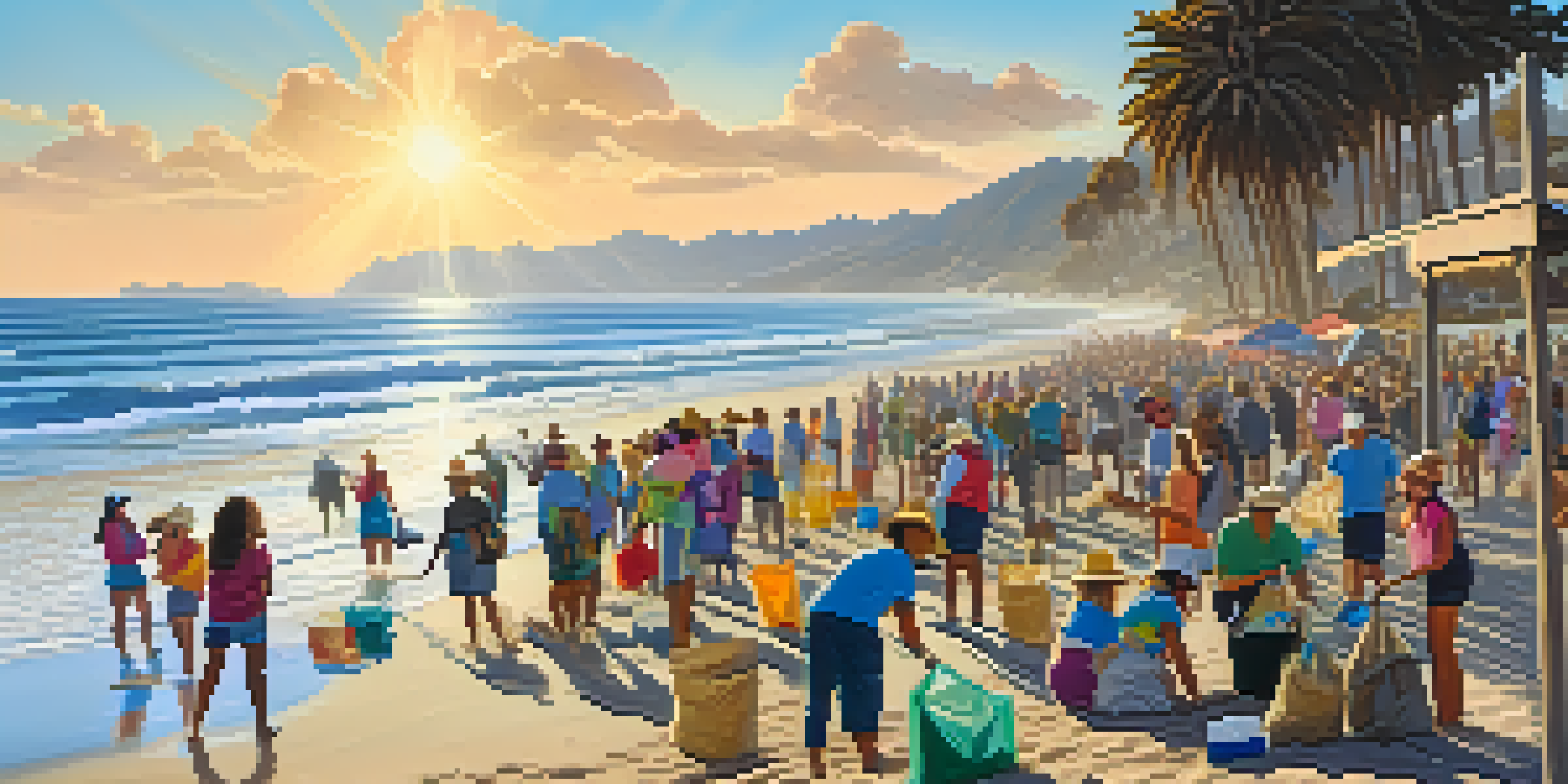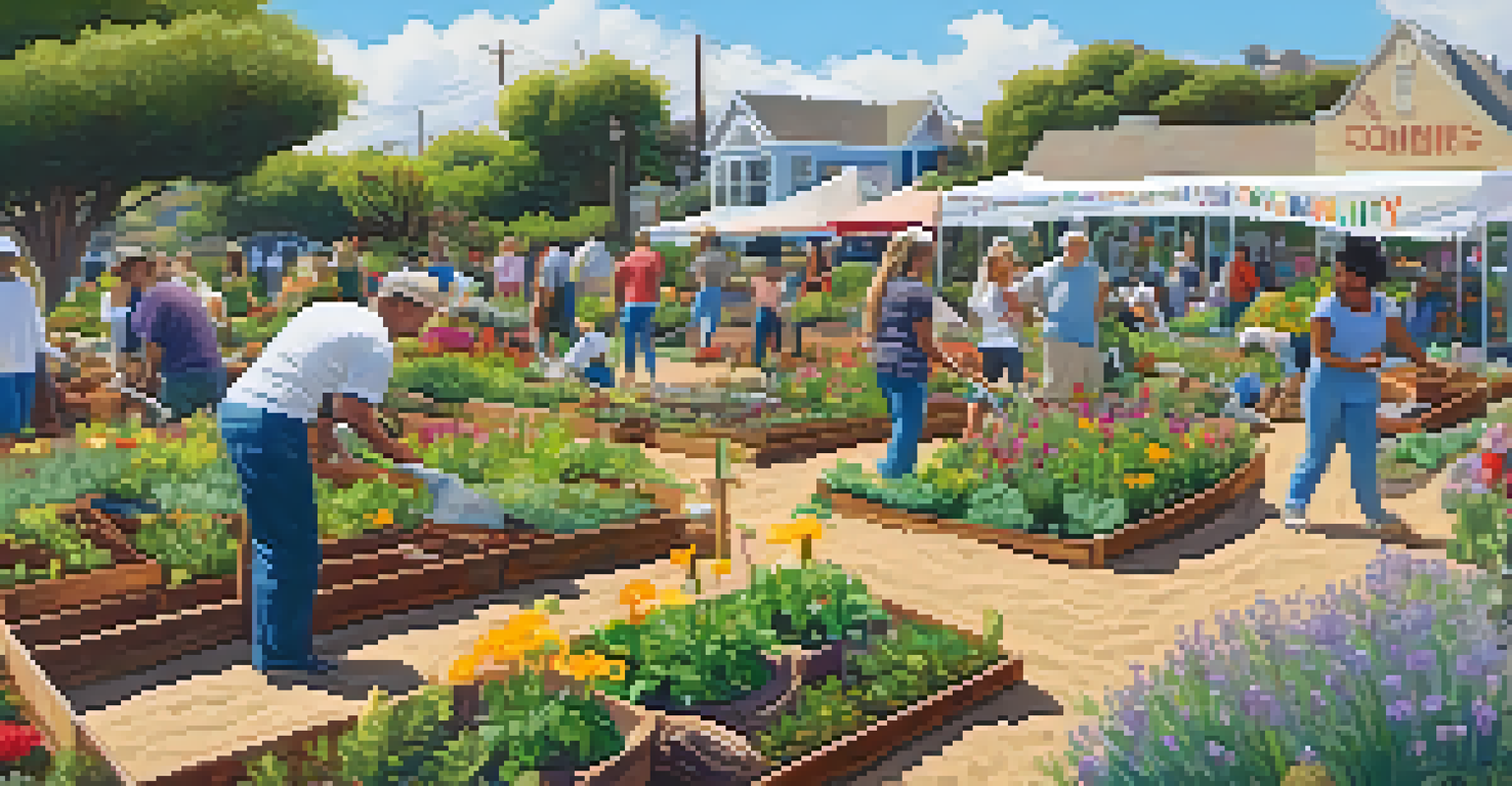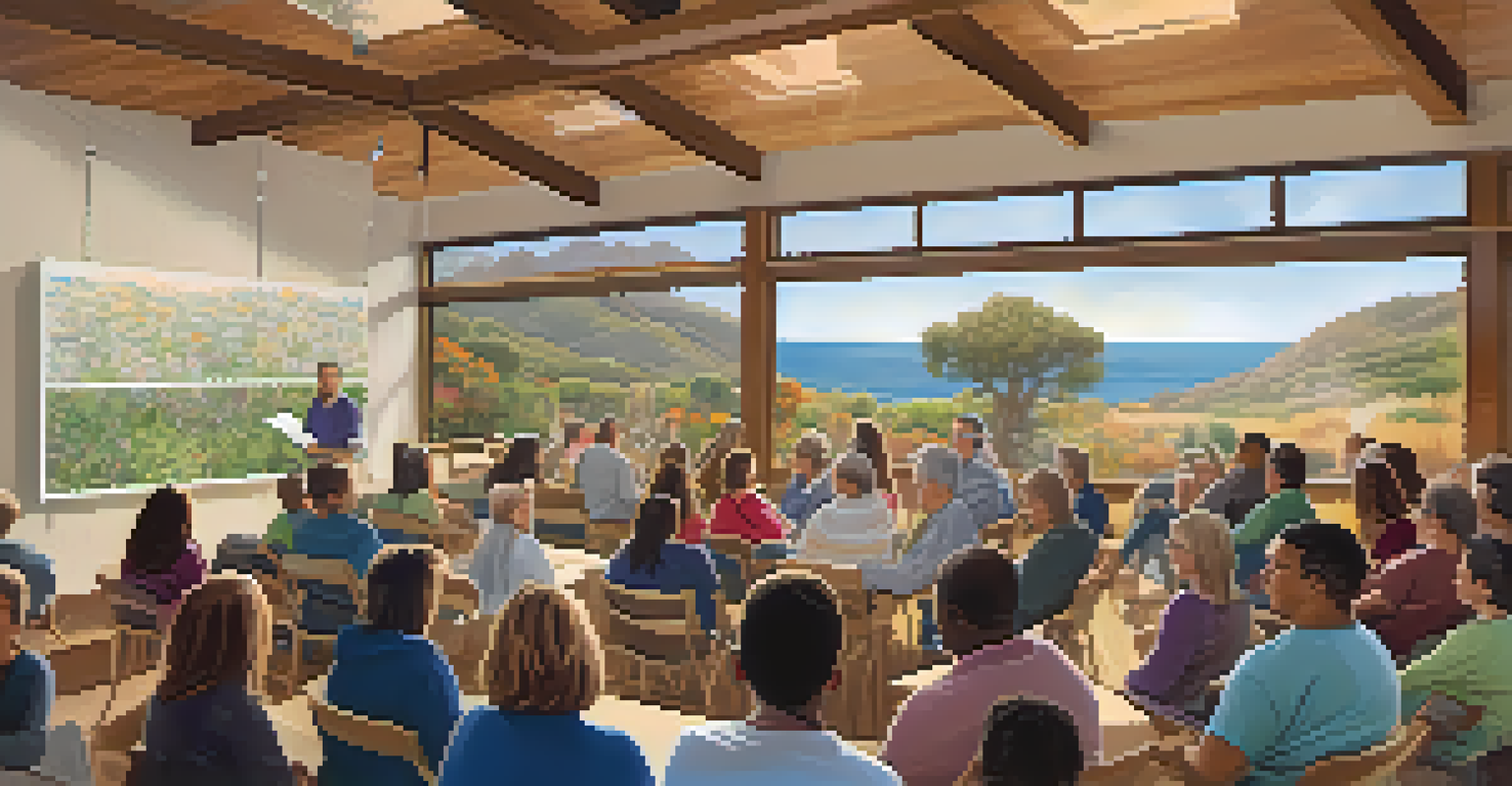Community Workshops: Engaging Malibu Residents in Conservation

The Importance of Community Engagement in Conservation
Community engagement is vital for effective conservation efforts. When residents are involved, they develop a deeper connection to their local environment, fostering a sense of stewardship. This engagement can lead to more sustainable practices and a shared commitment to protecting natural resources.
The greatest threat to our planet is the belief that someone else will save it.
In Malibu, where the stunning coastline and diverse ecosystems face numerous threats, community workshops play a crucial role. These workshops bring residents together to discuss conservation challenges and collaboratively brainstorm solutions. By participating, residents gain insights into the importance of their actions on local wildlife and habitats.
Moreover, engaging the community helps to build a network of passionate individuals who can advocate for conservation initiatives. This collective voice is powerful; it not only raises awareness but also influences local policies. Ultimately, when community members feel invested, they are more likely to take action and inspire others to do the same.
Types of Workshops Offered in Malibu
Malibu's community workshops encompass a wide range of topics, from beach clean-ups to sustainable gardening practices. For instance, a workshop focused on marine conservation might include hands-on activities like beach clean-ups, where residents actively remove litter from the shoreline. This not only helps the environment but also instills a sense of pride in participants.

Another popular workshop theme is habitat restoration, where locals learn about native plants and how to create wildlife-friendly gardens. These sessions often include planting days, where residents can directly contribute to enhancing local ecosystems. Such participation transforms abstract concepts into tangible actions, making conservation feel achievable.
Community Engagement Boosts Conservation
Involving residents in conservation efforts fosters a sense of stewardship and commitment to protecting local resources.
Additionally, workshops often feature guest speakers, such as environmental scientists or local activists, who share their expertise and experiences. Their stories can inspire residents to become more engaged and knowledgeable about the ecological issues facing Malibu. This blend of education and community action creates a vibrant learning environment.
Building a Conservation Community in Malibu
One of the most significant outcomes of community workshops is the sense of camaraderie they foster among participants. When individuals from different backgrounds come together with a shared goal, it strengthens community ties. This unity is essential for creating a supportive environment where conservation efforts can thrive.
In every community, there is work to be done. In every nation, there are wounds to heal. In every heart, there is the power to do it.
As residents collaborate on various projects, they not only learn from each other but also build friendships. These relationships often extend beyond the workshops, leading to informal gatherings or ongoing projects that continue to benefit the community. The result is a network of advocates committed to protecting Malibu's unique landscapes.
Furthermore, this sense of belonging can encourage residents to take leadership roles within the community. Some may even go on to organize their own initiatives, further amplifying the conservation message. Ultimately, workshops serve as a catalyst for a broader movement, empowering residents to be proactive in their environmental stewardship.
Success Stories from Malibu Residents
Many Malibu residents have experienced transformative moments through community workshops. For instance, one local participant shared how a beach clean-up inspired her to reduce plastic use in her daily life. By connecting her actions to the health of the ocean, she felt motivated to advocate for change within her social circles.
Another success story involves a group of residents who, after attending a native plant workshop, decided to revitalize their neighborhood park. They not only transformed the space into a thriving habitat for local wildlife but also created a gathering spot for community events. This project has since become a model for other neighborhoods in Malibu.
Workshops Foster Community Ties
Community workshops not only educate participants but also create camaraderie, leading to lasting friendships and collaborative environmental projects.
These stories illustrate the ripple effect that community workshops can have, demonstrating that individual actions can lead to collective impact. When residents share their experiences, it encourages others to participate and reinforces the idea that everyone can contribute to conservation efforts.
Challenges Faced in Community Conservation Initiatives
Despite the enthusiasm surrounding community workshops, several challenges can hinder progress. One common obstacle is limited funding, which can restrict the scope and frequency of events. Securing resources for materials and expert speakers is essential to keep workshops engaging and informative.
Additionally, attracting diverse participants can be a challenge. While some residents may be eager to join, others may feel disconnected from conservation efforts or unaware of their importance. Effective outreach strategies, including social media campaigns and partnerships with local organizations, are crucial for broadening participation.
Finally, sustaining momentum after workshops can be difficult. Participants may leave feeling inspired, but finding ways to keep them engaged in ongoing projects is vital. Establishing follow-up meetings or creating online platforms for sharing ideas can help maintain enthusiasm and encourage long-term commitment.
The Role of Local Organizations in Workshops
Local organizations play a pivotal role in facilitating community workshops. From environmental nonprofits to city agencies, these groups often provide the necessary expertise and resources to make workshops successful. Their involvement can lend credibility and attract a wider audience.
Moreover, these organizations can help in designing workshops that are relevant to the specific needs of the community. By assessing local environmental issues, they can tailor programs to address pressing concerns, ensuring that participants find value in the content. This targeted approach enhances the effectiveness of conservation efforts.
Local Organizations Enhance Impact
Partnerships with local organizations provide essential resources and expertise, ensuring that workshops address specific community conservation needs.
Partnerships between local organizations and residents can also lead to innovative solutions. When community members provide input, it fosters a sense of ownership over conservation initiatives. This collaboration not only enriches the workshop experience but also strengthens the community's commitment to preserving Malibu's natural beauty.
Looking Ahead: The Future of Conservation in Malibu
As community workshops continue to engage Malibu residents, the future of conservation looks promising. By nurturing a culture of involvement, the community is better equipped to tackle environmental challenges. Each workshop builds on the last, creating a foundation for sustainable practices and awareness.
Looking ahead, expanding the reach of these workshops could further enhance their impact. Incorporating digital platforms for virtual participation could allow more residents to join, regardless of their schedules. This flexibility could foster a more inclusive environment and encourage broader participation.

Ultimately, the continued success of these workshops hinges on the collective effort of residents, local organizations, and city officials. Together, they can create a legacy of conservation that not only protects Malibu's natural resources but also inspires future generations to cherish and care for their environment.